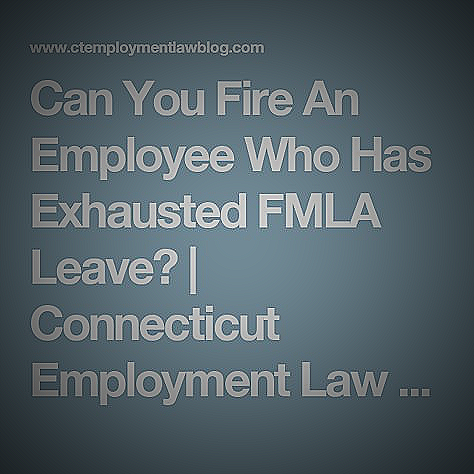Can I Be Fired for Not Qualifying for FMLA?
If you are an employee who is experiencing a medical condition or has to take care of a family member with a medical condition, you might be eligible for leave under the Family and Medical Leave Act (FMLA). FMLA is designed to protect employees from losing their jobs due to medical leave and facilitate a better work-life balance.
In this article, we will discuss whether not qualifying for FMLA can result in termination and what options you have in such a situation.
Check out this Youtube video: “What Employees Can and Cannot Do During FMLA Leave.” If you’re worried about being fired because you don’t qualify for FMLA, this video provides helpful information for employees.
This Youtube video titled “What Employees Can and Cannot Do During FMLA Leave” is a must-watch for anyone who wants to know the dos and don’ts of taking leave under the Family and Medical Leave Act (FMLA). Don’t miss out on the chance to get useful advice about your rights and responsibilities as an employee.
What is FMLA?
FMLA or Family Medical Leave Act is a federal law that aims to provide eligible employees with up to 12 weeks of unpaid but job-protected leave in a year. This law helps employees in balancing their work and family life by allowing them to take necessary leave for certain medical or family reasons.
The primary intent behind the FMLA is to accommodate the legitimate interests of both employees and employers while promoting equal employment opportunity for all genders.
Not all employees are covered under FMLA, and the eligibility criteria for FMLA needs to be met to be able to avail its benefits.
Under the FMLA, eligible employees are entitled to maintain employer-provided health insurance while taking the leave.
Can I Be Fired for Not Qualifying for FMLA?
If an employee does not qualify for FMLA due to reasons such as not having worked long enough or not having a qualifying health condition, an employer may still terminate their employment. However, the termination cannot be solely based on the employee’s ineligibility for FMLA.
Employers may terminate an employee for other reasons such as performance issues, violation of company policies, or misconduct.
It is important for employers to provide clear and concise policies regarding FMLA eligibility and termination procedures to avoid any confusion or misunderstandings. Employers must also ensure that their termination decisions do not violate any federal or state laws prohibiting discrimination based on protected characteristics such as gender, race, religion, disability, or age.
For example, if an employee was terminated after being diagnosed with a health condition that did not qualify for FMLA, but another employee who had a similar condition and did qualify for FMLA was not terminated, the first employee may have a valid claim of discrimination.

In summary, while an employee may be terminated for not qualifying for FMLA, the termination must be based on legitimate reasons and not solely on the employee’s ineligibility for FMLA. Employers must ensure that their termination decisions are fair, non-discriminatory, and comply with all relevant laws and regulations.
Other Acts That Protect Employees
While FMLA offers protection to eligible employees, those who are not eligible may wonder if there are other laws that protect them in case they need medical leave. Here are some other acts that protect employees:
Americans with Disabilities Act (ADA)
The ADA covers employees with disabilities and requires employers to provide reasonable accommodations to enable them to perform their job duties. This can include unpaid leave as a reasonable accommodation for employees who need time off for medical treatment or recovery.
State Laws
Some states have their own medical leave laws that provide job protection to employees who need to take time off for medical reasons, including those who do not qualify for FMLA. These laws may offer different eligibility requirements and benefits, so it is important to check your state’s laws to see if you are covered.
For instance, California’s Family Rights Act (CFRA) provides similar protections to FMLA, including up to 12 weeks of unpaid leave for eligible employees. However, it has some key differences, including a lower eligibility threshold and broader definition of family members.
Other states, such as New York and New Jersey, have enacted their own medical leave laws that provide job protections, paid leave, or both. These laws may cover more employees and offer longer leave periods than FMLA.
Overall, if you need to take medical leave but do not qualify for FMLA, you may still have rights under these other laws.
Employer Obligations
As an employer, it is your obligation to inform your employees about their FMLA rights. This means that you need to post a notice in a prominent location that explains the basic provisions of the FMLA.
You also need to provide your employees with a general notice that explains their rights and responsibilities under the FMLA, along with information about how to file a complaint if they believe their rights have been violated.
In addition, employers have an obligation to provide reasonable accommodations to employees with medical conditions or disabilities. This includes providing modified work schedules or temporary or permanent job restructuring, as long as it does not impose an undue hardship on the employer.
Employers must also engage in an interactive process with employees to determine the best way to accommodate their condition or disability.
What to Do if You Have Been Unlawfully Terminated
If you believe that you have been terminated unlawfully due to medical leave, there are certain steps you can take to protect your rights. Here are some things you can do:
1. Identify the Reason for Your Termination
The first step is to determine why you were terminated. If the reason was related to your medical leave, then you may have a case for wrongful termination.
2. Familiarize Yourself with Your Rights
It is important to know your rights under the Family and Medical Leave Act (FMLA). If you were eligible for FMLA but were terminated for taking leave, you may be entitled to reinstatement or other damages.
You should also know your state’s laws regarding medical leave and wrongful termination.
3. File a Complaint
If you believe that you have been terminated unlawfully, you can file a complaint with the Equal Employment Opportunity Commission (EEOC) or your state’s labor department. These agencies can investigate your case and determine whether your employer violated any laws.
4. Seek Legal Help
If you believe that your employer violated the law, you may want to consider consulting with an attorney who specializes in employment law. An attorney can help you understand your rights and options, and can represent you in legal proceedings if necessary.
5. Keep Records
It is important to keep records of any communications you have with your employer, as well as any medical documents related to your leave. These records can be useful in proving your case if you decide to take legal action.
Remember that it is illegal for employers to terminate employees for taking medical leave under the FMLA. If you believe that you have been terminated unlawfully, take immediate action to protect your rights.
Frequently Asked Questions
Can an employee be fired for not qualifying for FMLA?
What are the requirements for FMLA eligibility?
What protection does FMLA provide for employees?
Can an employee be terminated for taking FMLA leave?
What should I do if I think I was wrongfully terminated?
Conclusion
Being ineligible for FMLA due to insufficient tenure, the employer having fewer than 50 employees at the location, or not having a qualified health condition does not necessarily imply an employee can be fired. However, employers can terminate employees for reasons of personal fault, illness, business-related grounds, or violations of labor laws.

